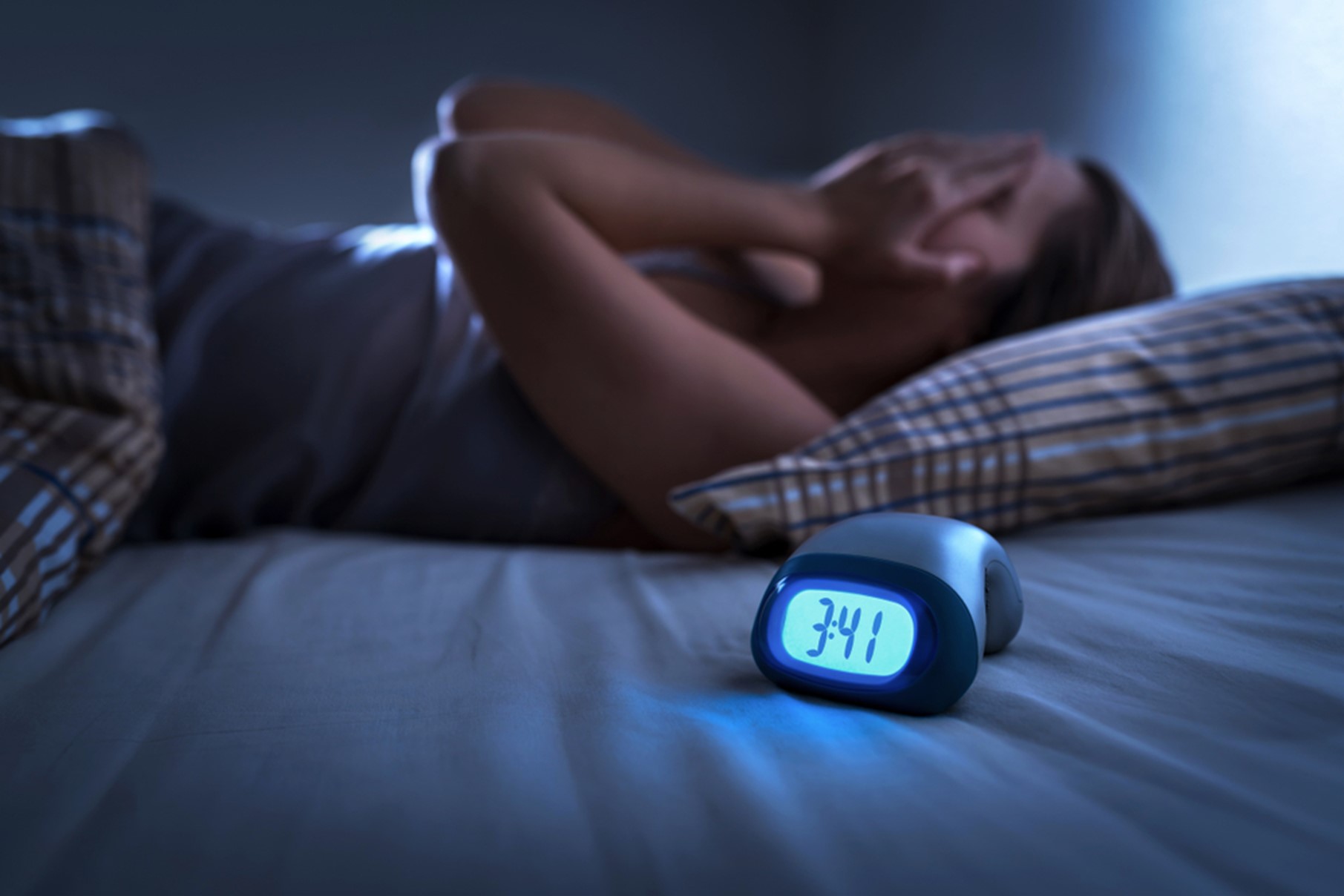Sleepy's use independent contractors for delivery services to our customers and during this time we want to support these small business owners and our customers to ensure safety for all. This may mean some interruptions to our normal delivery service and Free Old Mattress Removal which will be based on advice obtained from the Australian Government and the precautionary measures our delivery contractors determine necessary. If you are purchasing in one of our Sleepy’s showrooms or online, our staff will confirm the current status and keep you updated until your order has been delivered. If you are unable to accept the delivery due to illness or quarantine, you can arrange an alternative delivery time with the store. We are committed to continuing Sleepy’s amazing customer experience from the start of your mattress selection through to post purchase, delivery and beyond.
Read More
What Is Sleep Paralysis?
Read More
What Is Sleep Paralysis?
April 11th, 2022
For some people, it’s not enough that they may suffer from sleep problems such as insomnia – they may also experience what is known as sleep paralysis. This sometimes debilitating sleep issue is often caused by your body being unable to pass through the different stages of sleep, but for centuries was attributed to forces of evil visiting in the night.
Thankfully, sleep studies have come a long way. We are now able to determine sleep paralysis causes as well as its symptoms, and find ways to actively work on our sleep hygiene to slow the occurrence of sleep paralysis. We also now understand that sleep paralysis is a sensation wherein a person is awake, but cannot move for anywhere for a few seconds to a few minutes. Some people with this condition may also experience hallucinations. It may also be accompanied by other sleep disorders, such as narcolepsy.
Who Can Develop Sleep Paralysis?
While sleep paralysis can affect just about anyone, some individuals are more prone to developing it than others. It is usually first observed during teenaged years, but can come on at any time and affect adults as well.
The main reasons that a person develops sleep paralysis include:
- A general lack of sleep, or a sleep schedule that suddenly changes
- Sleeping on your back
- Other sleep disorders, including narcolepsy
- Mental conditions, including bipolar disorder or extreme stress
- Substance abuse
- Certain medications, such as those for ADHD.
Along with an out of synch REM (Rapid Eye Movement) and NREM (Non-Rapid Eye Moment) cycle, these are the main sleep paralysis causes. Family history may also play a role in the development of sleep paralysis, too.
Sleep Paralysis Symptoms
Sleep paralysis symptoms and signs are usually quite obvious and may include the following:
- Paralysis in your limbs
- Hallucinations
- A sense of fear and panic
- Helplessness
- Tightening around throat, a sense of suffocation or the inability to speak
- Daytime sleepiness.
Sleep Paralysis Diagnosis
If you believe you are suffering from sleep paralysis and display any of the above sleep paralysis symptoms, it is best to contact your GP and have a discussion with them. You doctor may ask you if any of the sleep paralysis symptoms and signs are present in order to determine your diagnosis:
- How often you experience sleep paralysis and what it feels like
- How many hours of sleep you get each night, and whether or not you feel tired during the day
- Medical history including medications
- Whether or not you use alcohol or recreational drugs
- Mental health disorders, including PTSD or depression
- Family history of sleep paralysis.
Whilst sleep paralysis does not normally need to be formally diagnosed, there are tests you can undertake in order to 100% determine a diagnosis, including an overnight sleep study (polysomnogram) that monitors your breathing, heartrate and brain activity while you sleep. Another option is a multiple sleep latency test (MSLT), which measures how quickly you fall asleep and what kind of sleep you experience.
Sleep Paralysis Treatment
One of the best things you can do to treat sleep paralysis is to look at your sleep hygiene. Poor sleep hygiene, which includes irregular sleep schedules, consuming caffeine or alcohol too close to bedtime, and more, is an underlying contributor to sleep disorders including sleep paralysis.
Good sleep hygiene can include creating a bedroom that’s comfortable to be in, switching off mobile phones and other sources of blue light (such as your computer) at least thirty minutes before bedtime, and regular exercise during the day (just not too late in the day). A bath before bed is also a great way to promote good sleep hygiene.
Learn more about sleep hygiene and why it’s so important here
Some people find that small movements can also help snap them out of sleep paralysis, such as attempting to move just one finger, then another. Your GP may recommend treatments that help to reduce the likelihood of sleep paralysis events in the future.
After experiencing sleep paralysis, you may feel tired, emotional or even scared. It’s important to be kind to yourself afterwards, and to catch up on extra sleep if need me. If you are concerned about sleep paralysis, be sure to talk to your doctor in order to determine what your next steps should be.
Interested in learning more about sleep, and how to improve it? Here’s some more bedtime reading for you to explore.

